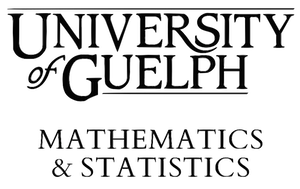Academic Integrity
The University of Guelph is committed to upholding the highest standards of academic integrity and it is the responsibility of all members of the University community – faculty, staff, and students – to be aware of what constitutes academic misconduct and to do as much as possible to prevent academic offences from occurring. University of Guelph students have the responsibility of abiding by the University's policy on academic misconduct regardless of their location of study; faculty, staff and students have the responsibility of supporting an environment that discourages misconduct. Students need to remain aware that instructors have access to and the right to use electronic and other means of detection.
Please note: Whether or not a student intended to commit academic misconduct is not relevant for a finding of guilt. Hurried or careless submission of assignments does not excuse students from responsibility for verifying the academic integrity of their work before submitting it. Students who are in any doubt as to whether an action on their part could be construed as an academic offence should consult with a faculty member or faculty advisor.
The Academic Misconduct Policy [1] is outlined in the Undergraduate Calendar.
Accessibility
The University promotes the full participation of students who experience disabilities in their academic programs. To that end, the provision of academic accommodation is a shared responsibility between the University and the student.
When accommodations are needed, the student is required to first register with Student Accessibility Services (SAS). Documentation to substantiate the existence of a disability is required, however, interim accommodations may be possible while that process is underway.
Accommodations are available for both permanent and temporary disabilities. It should be noted that common illnesses such as a cold or the flu do not constitute a disability.
Use of the SAS Exam Centre requires students to make a booking at least 10 business days in advance, and no later than the first business day in November, March or July as appropriate for the semester. Similarly, new or changed accommodations for online quizzes, tests and exams must be approved at least a week ahead of time.
More information: www.uoguelph.ca/sas [2].
Accommodation of Religious Obligations
If you are unable to meet an in-course requirement due to religious obligations, please email the course instructor within two weeks of the start of the semester to make alternate arrangements.
See the Academic calendar for information on regulations and procedures for Academic Accommodation of Religious Obligations [3].
Copies of Out-Of-Class Assignments
Keep paper and/or other reliable back-up copies of all out-of-class assignments: you may be asked to resubmit work at any time.
Drop Date
Courses that are one semester long must be dropped by the end of the last day of classes; two-semester courses must be dropped by the last day of classes in the second semester. The regulations and procedures for Dropping Courses [4] are available in the Undergraduate Calendar.
Email Communication
As per university regulations, all students are required to check their <uoguelph.ca> e-mail account regularly: e-mail is the official route of communication between the University and its students.
Health and Wellbeing
The University of Guelph provides a wide range of health and wellbeing services at the Vaccarino Centre for Student Wellness [5]. If you are concerned about your mental health and not sure where to start, connect with a Student Wellness Navigator [6] who can help develop a plan to manage and support your mental health or check out our mental wellbeing resources. [7] The Student Wellness team are here to help and welcome the opportunity to connect with you.
Illness
Medical notes will not normally be required for singular instances of academic consideration, although students may be required to provide supporting documentation for multiple missed assessments or when involving a large part of a course (e.g., final exam or major assignment).
Recording of Materials
Presentations which are made in relation to course work—including lectures—cannot be recorded or copied without the permission of the presenter, whether the instructor, a classmate or guest lecturer. Material recorded with permission is restricted to use for that course unless further permission is granted.
Resources
The Academic Calendars [8] are the source of information about the University of Guelph’s procedures, policies and regulations which apply to undergraduate, graduate and diploma programs.
When You Cannot Meet a Course Requirement
When you find yourself unable to meet an in-course requirement because of illness or compassionate reasons, please advise the course instructor (or designated person, such as a teaching assistant) in writing, with your name, id#, and e-mail contact. See the Undergraduate Calendar for information on regulations and procedures for Academic Consideration [9].
